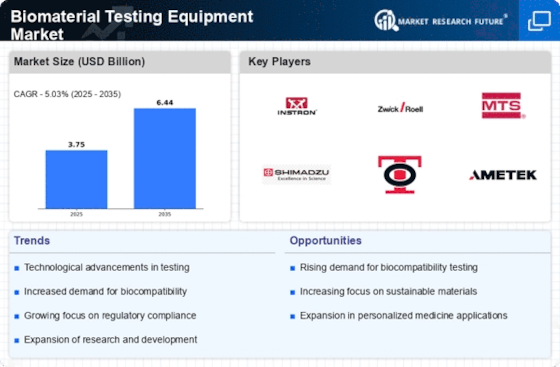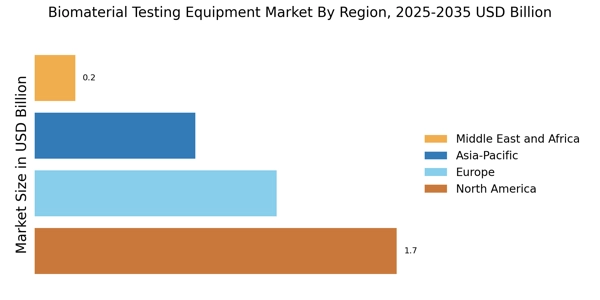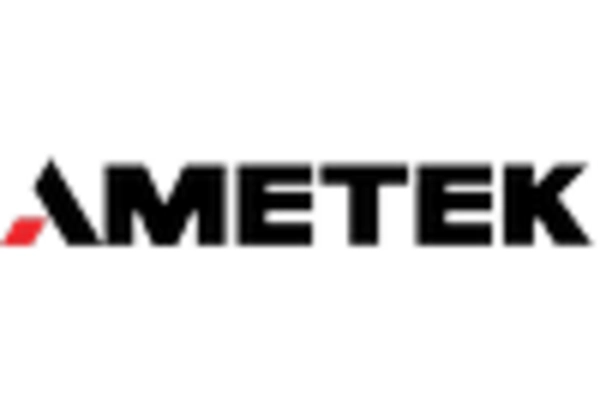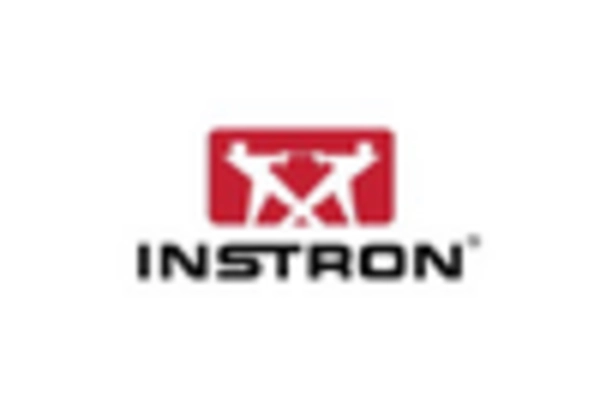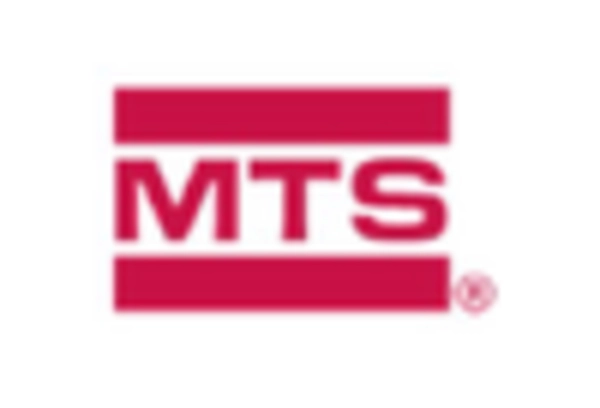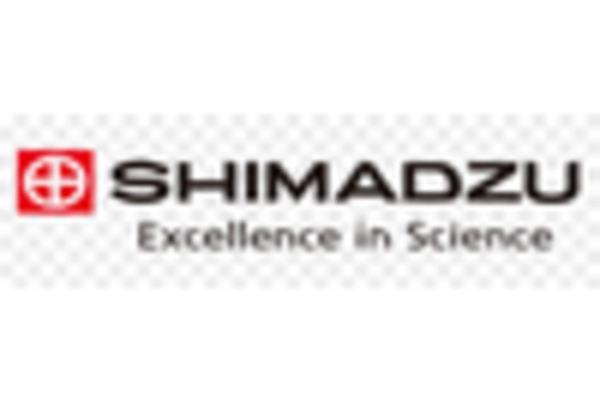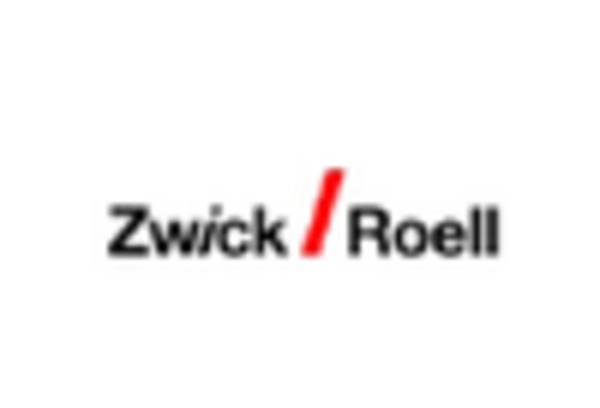Regulatory Compliance and Standards
The Biomaterial Testing Equipment Market is significantly influenced by the stringent regulatory landscape governing the use of biomaterials in various applications. Regulatory bodies are increasingly mandating comprehensive testing protocols to ensure the safety and efficacy of biomaterials used in medical and industrial applications. For instance, the ISO 10993 standard outlines the biological evaluation of medical devices, necessitating the use of advanced testing equipment. As a result, manufacturers are compelled to invest in state-of-the-art biomaterial testing technologies to comply with these regulations. The growing emphasis on regulatory compliance is expected to drive the demand for testing equipment, as companies strive to meet the evolving standards and maintain their market position. This trend underscores the critical role of the Biomaterial Testing Equipment Market in facilitating safe and effective biomaterial applications.
Rising Demand for Advanced Medical Devices
The Biomaterial Testing Equipment Market is experiencing a notable surge in demand due to the increasing need for advanced medical devices. As healthcare providers seek to enhance patient outcomes, the reliance on biomaterials in implants and prosthetics has escalated. This trend is supported by data indicating that the medical device market is projected to reach USD 600 billion by 2025, thereby driving the need for rigorous testing of biomaterials. Consequently, manufacturers are investing in sophisticated testing equipment to ensure compliance with regulatory standards and to validate the performance of new materials. This heightened focus on quality and safety in medical applications is likely to propel the growth of the Biomaterial Testing Equipment Market, as stakeholders prioritize the development of innovative solutions that meet stringent requirements.
Increasing Awareness of Environmental Impact
The Biomaterial Testing Equipment Market is increasingly shaped by the growing awareness of environmental sustainability and the impact of biomaterials on ecological systems. As industries shift towards more sustainable practices, there is a heightened focus on the lifecycle assessment of biomaterials, necessitating rigorous testing to evaluate their environmental footprint. This trend is reflected in the rising demand for biodegradable and eco-friendly materials, which require specialized testing to ensure their performance and safety. Market analysts project that the demand for sustainable biomaterials will grow by approximately 15% annually, driving the need for advanced testing equipment that can accurately assess these materials. Consequently, the Biomaterial Testing Equipment Market is poised to play a crucial role in supporting the transition towards more sustainable material solutions.
Growing Investment in Research and Development
The Biomaterial Testing Equipment Market is benefiting from a significant increase in investment directed towards research and development activities. As industries such as healthcare, aerospace, and automotive explore the potential of biomaterials, the need for comprehensive testing solutions becomes paramount. Data indicates that R&D spending in the biomaterials sector is projected to exceed USD 10 billion by 2026, highlighting the commitment to innovation and quality assurance. This influx of funding is likely to stimulate the development of new testing methodologies and equipment, thereby enhancing the overall capabilities of the Biomaterial Testing Equipment Market. As companies strive to create high-performance biomaterials, the demand for specialized testing equipment will continue to rise, fostering a dynamic environment for growth and advancement.
Technological Advancements in Testing Equipment
The Biomaterial Testing Equipment Market is witnessing a wave of technological advancements that are enhancing the capabilities of testing equipment. Innovations such as automated testing systems, real-time data analytics, and advanced imaging techniques are revolutionizing the way biomaterials are evaluated. These technologies not only improve the accuracy and efficiency of testing processes but also reduce the time required for product development. Market data suggests that the adoption of automated testing solutions is expected to grow by over 20% annually, reflecting the industry's shift towards more sophisticated methodologies. As researchers and manufacturers seek to streamline their operations and enhance product quality, the demand for cutting-edge biomaterial testing equipment is likely to increase, further propelling the growth of the Biomaterial Testing Equipment Market.


